Implementation & Adoption Stories
The FAIR-IMPACT Implementation stories illustrate good practices in research communities and organisations to support the implementation of the FAIR principles.
Implementation Story
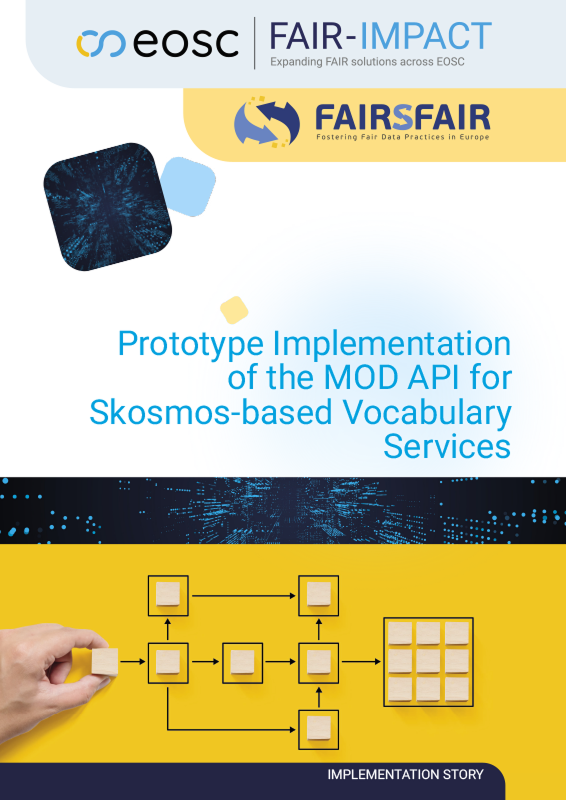
Semantic Artefact Catalogue (SAC) providers were invited to apply to join this support action to implement an API based on the Metadata for Ontology Description and Publication (MOD) ontology to promote interoperability and enhance access to SACs. This API enables a uniform interface to semantic artefacts (SA), enabling seamless querying by stakeholders, regardless of domain. This open call was an opportunity for SACs to participate in a community-driven effort to improve the FAIRness of their resources through the adoption of this API. The MOD-API is formalised by means of an OpenAPI template designed to guide the implementation of Web REST APIs. This support offer was a call for implementations of the MOD-API by existing SACs. FAIR-IMPACT offered to support to relevant labs, institutions or infrastructure already providing (some kind of) SAC and who were willing to implement the MOD-API on top of their catalogues to ease the use of their services and enable a better interoperability between all SACs.
Implementation Story
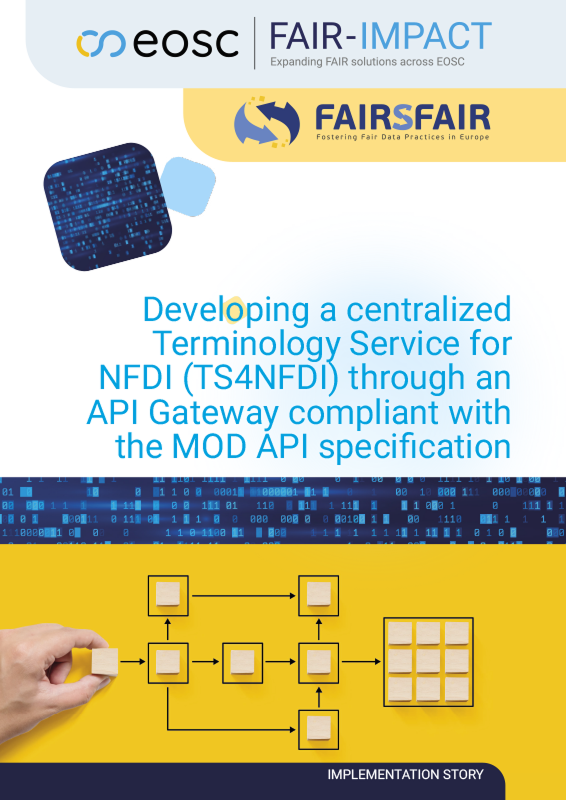
Semantic Artefact Catalogue (SAC) providers were invited to apply to join this support action to implement an API based on the Metadata for Ontology Description and Publication (MOD) ontology to promote interoperability and enhance access to SACs. This API enables a uniform interface to semantic artefacts (SA), enabling seamless querying by stakeholders, regardless of domain. This open call was an opportunity for SACs to participate in a community-driven effort to improve the FAIRness of their resources through the adoption of this API.
This support offer was a call for implementations of the MOD-API by existing SACs. FAIR-IMPACT offered to support to relevant labs, institutions or infrastructure already providing (some kind of) SAC and who were willing to implement the MOD-API on top of their catalogues to ease the use of their services and enable a better interoperability between all SACs.
Implementation Story
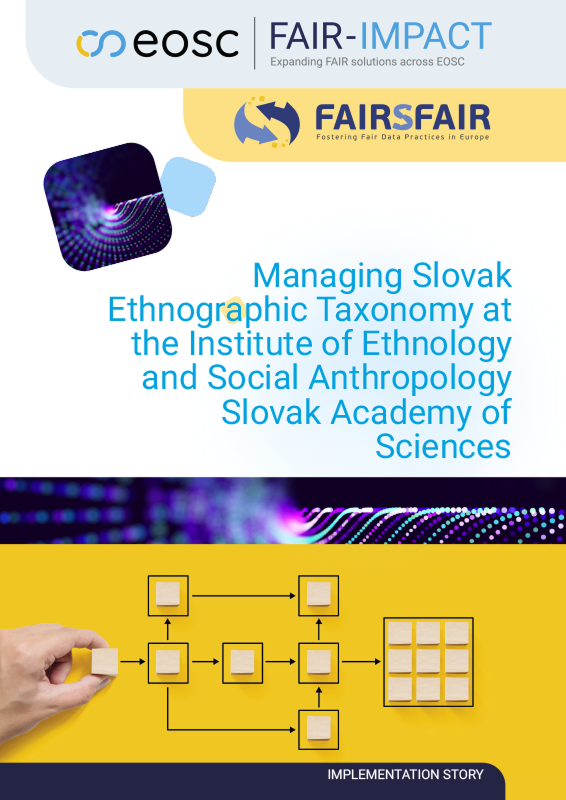
The support action introduced successful applicants to three tools developed by the FAIRCORE4EOSC (FC4E) project. These include the Data Type Registry (DTR), vocabulary service, and Metadata Schema and Crosswalk Registry (MSCR).
This FAIR Implementation Story outlines the specific aims, actions and experiences of the Institute of Ethnology and Social Anthropology Slovak Academy of Sciences in relation to their participation in this support action
Implementation Story
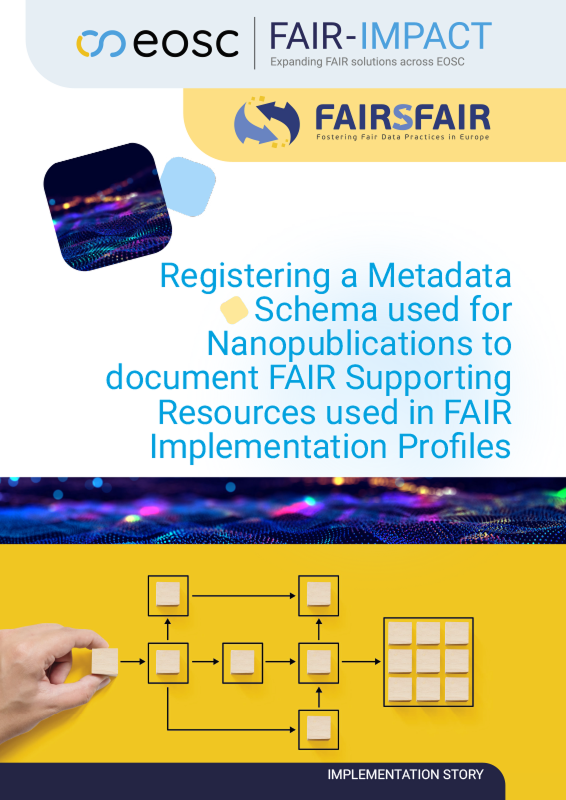
The support action introduced successful applicants to three tools developed by the FAIRCORE4EOSC (FC4E) project. These include the Data Type Registry (DTR)2, vocabulary service, and Metadata Schema and Crosswalk Registry (MSCR).
Implementation Story
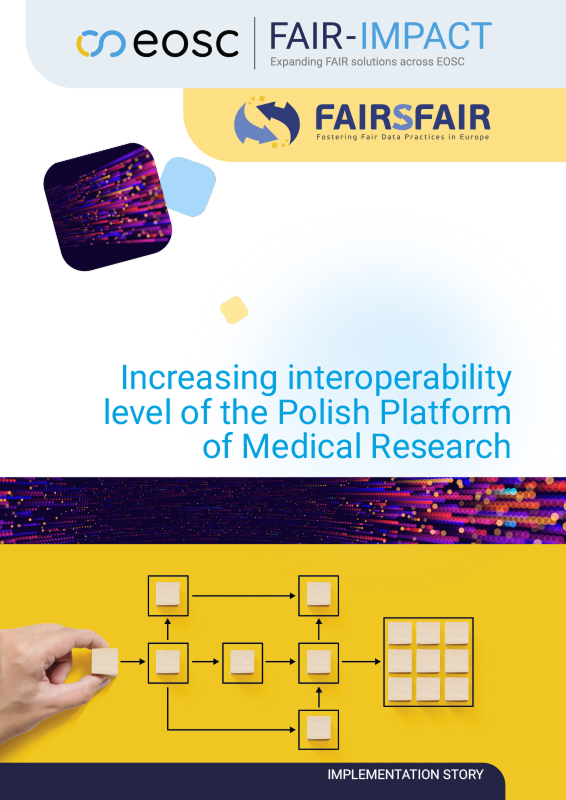
One of the main concerns when we deploy a service, especially those related to data, is how this service can work with others. This is relevant for services to be integrated in the EOSC ecosystem. The creation of the EOSC Interoperability Framework is an effort to analyse the gaps and problems addressed in this context. Also, it provides recommendations to improve this integration.
This FAIR Implementation Story outlines the specific aims, actions and experiences of Medical University of Gdansk Main Library in relation to their participation in this support action.
Implementation Story
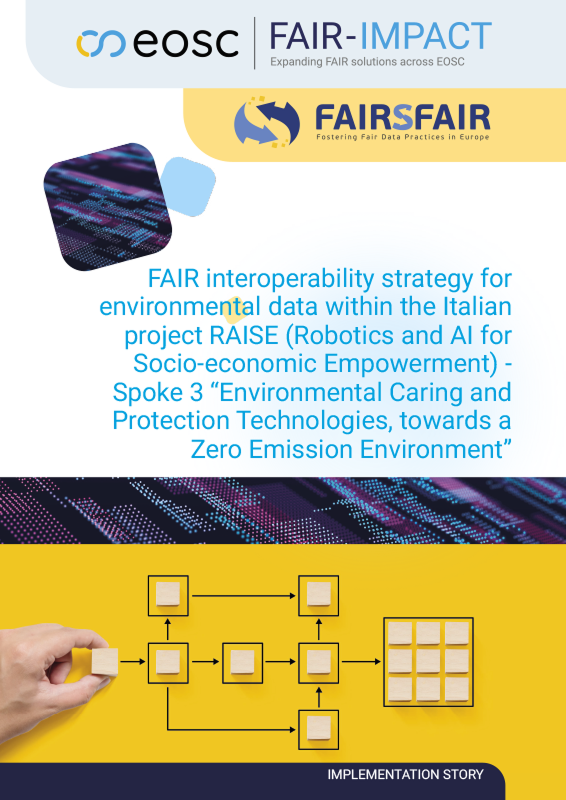
One of the main concerns when we deploy a service, especially those related to data, is how this service can work with others. This is relevant for services to be integrated in the EOSC ecosystem. The creation of the EOSC
Interoperability Framework is an effort to analyse the gaps and problems addressed in this context. Also, it provides recommendations to improve this integration.
This FAIR Implementation Story outlines the specific aims, actions and experiences of ETT S.p.A. in relation to their participation in this support action.
Implementation Story
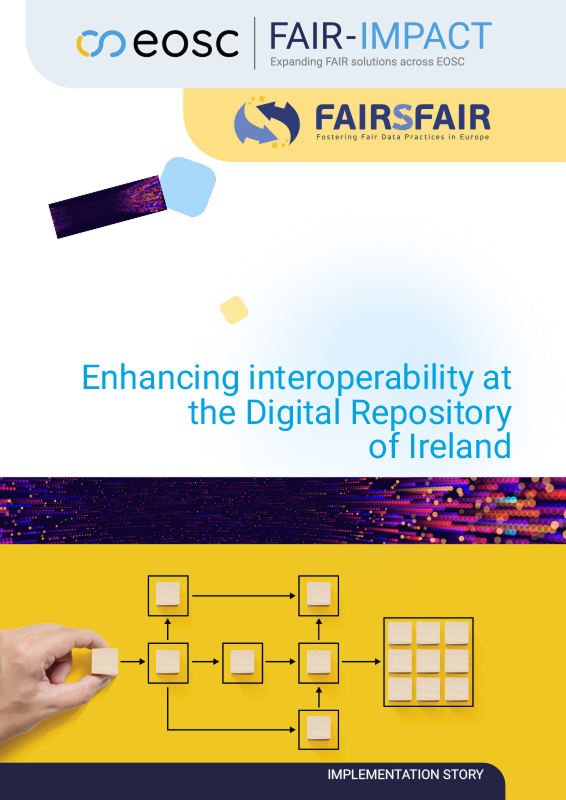
One of the main concerns when we deploy a service, especially those related to data, is how this service can work with others. This is relevant for services to be integrated in the EOSC ecosystem. The creation of the EOSC Interoperability Framework is an effort to analyse the gaps and problems addressed in this context. Also, it provides recommendations to improve this integration. This FAIR Implementation Story outlines the specific aims, actions and experiences of the Digital Repository of Ireland in relation to their participation in this support action.
Implementation Story
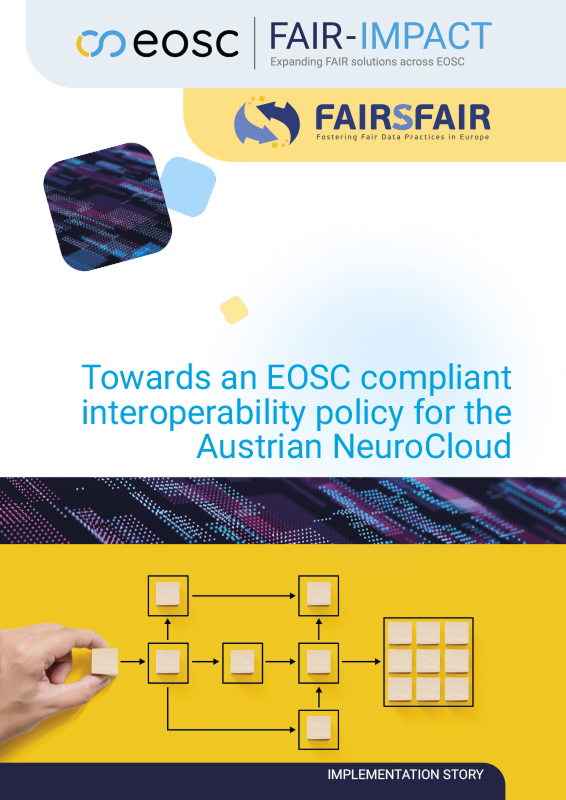
One of the main concerns when we deploy a service, especially those related to data, is how this service can work with others. This is relevant for services to be integrated in the EOSC ecosystem. The creation of the EOSC Interoperability Framework is an effort to analyse the gaps and problems addressed in this context. Also, it provides recommendations to improve this integration. This FAIR Implementation Story outlines the specific aims, actions and experiences of the Austrian NeuroCloud in relation to their participation in this support action.
Implementation Story
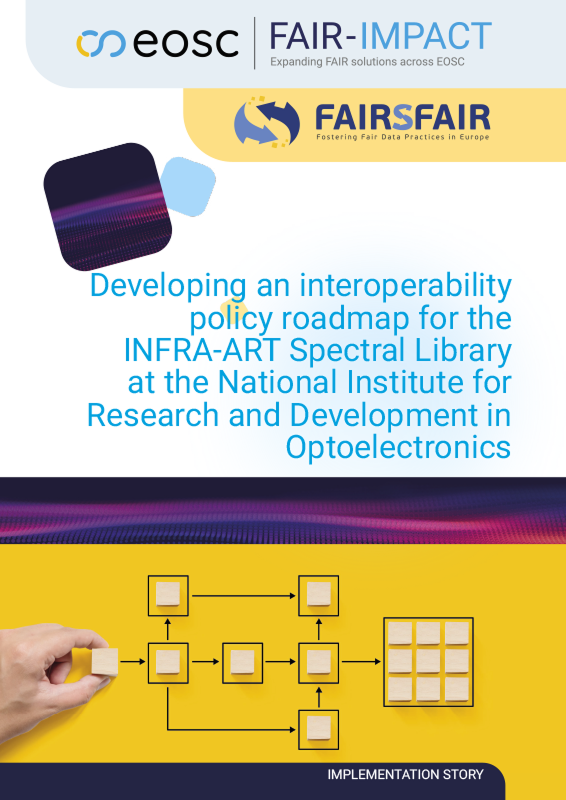
One of the main concerns when we deploy a service, especially those related to data, is how this service can work with others. This is relevant for services to be integrated in the EOSC ecosystem. The creation of the EOSC Interoperability Framework is an effort to analyse the gaps and problems addressed in this context. In this support action, selected participants analysed the interoperability status of their services using the FAIRCORE4EOSC Compliance Assessment Tool (CAT).
Implementation Story
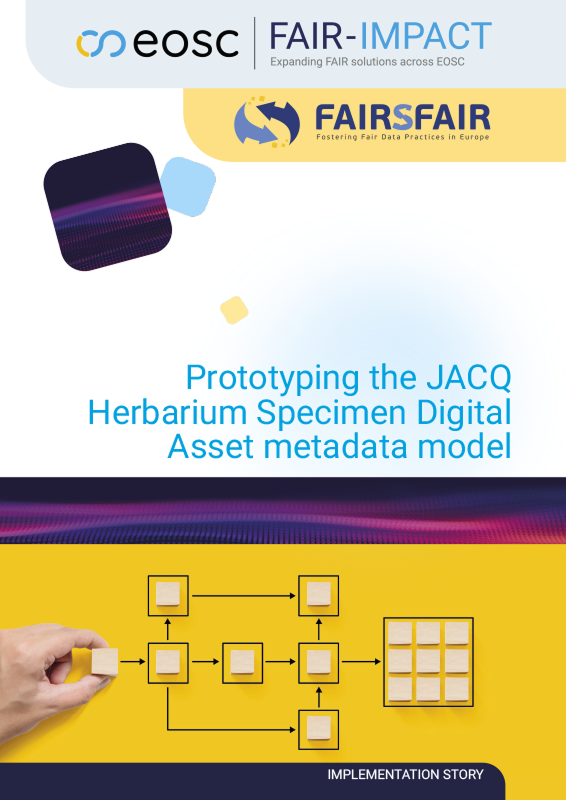
The support action introduced successful applicants to three tools developed by the FAIRCORE4EOSC (FC4E) project. These include the Data Type Registry (DTR), vocabulary service, and Metadata Schema andCrosswalk Registry (MSCR). This FAIR Implementation Story outlines the specific aims, actions and experiences of Charles University, Herbarium PRC in relation to their participation in this support action.
Implementation Story
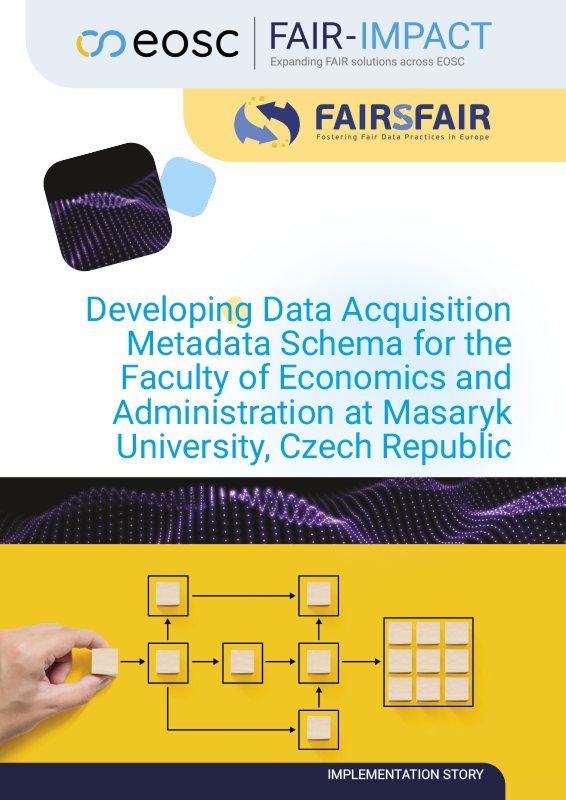
The support action introduced successful applicants to three tools developed by the FAIRCORE4EOSC (FC4E) project. These include the Data Type Registry (DTR), vocabulary service, and Metadata Schema and Crosswalk Registry (MSCR).
Implementation Story
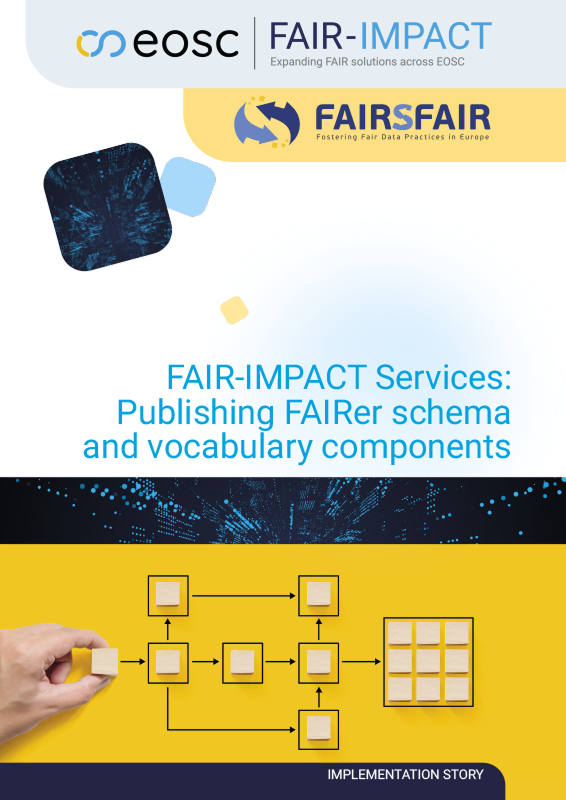
The support action introduced successful applicants to three tools developed by the FAIRCORE4EOSC (FC4E) project. These include the Data Type Registry (DTR), vocabulary service, and Metadata Schema and Crosswalk Registry (MSCR).